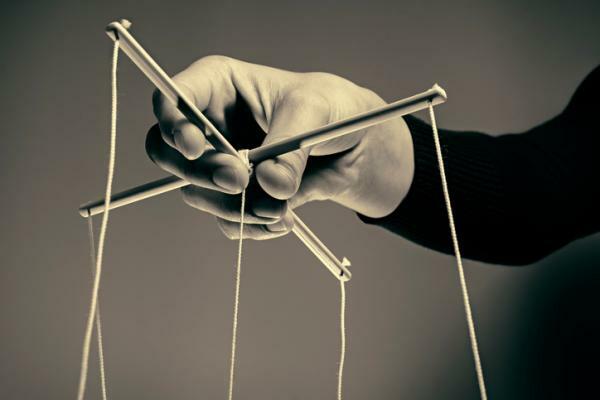
One of the most common types of violence between people, whether family or partner, is psychological abuse. This is defined as behavior of a verbal nature or through gestures and actions that endangers the mental health of another person. Many times, this type of abuse is used to intimidate, extort, or show power to the victim.
The consequences of psychological abuse can generate discomfort, psychological imbalances, trauma and even chronic diseases such as anxiety or social phobia. In order to deal with this problem, it is urgent and necessary to carry out a complete psychological profile of the person whose objective is to mistreat others. For that same reason, in this Psychology-Online article, we will talk about psychological abuser and his personality profile.
Index
- How does a psychological abuser act?
- Types of abusers
- Profile of a victim of psychological abuse
- Profile of a psychological abuser: test
How does a psychological abuser act?
Psychological abuse can be very subtle but extremely serious. These situations of abuse can start with small jokes, teasing and comments of no apparent importance, however, they can be a sign that the person with whom we are interacting is a psychological abuser. For that same reason, we must learn to detect the signs that unmask abusive behaviors.
How to recognize a psychological abuser
Next, we will carry out a psychological profile of the abuser:
- They may be lovely at first: a psychological abuser does not show himself as such, otherwise no one would approach. They usually establish a very close and intimate contact with a person to create a bond of emotional dependence.
- Under impulse control: a person who tends to mistreat others does not have to be cold and calculating. Rather, the opposite occurs, abuse is a sign of emotional mismanagement, therefore, when someone is impulsive, they are more likely to exercise violence, both verbal and physical.
- Low self-esteem: the feeling of inferiority in some people may become the main reason for their psychological violence. Feeling less than others, they have a need to show power and make other people feel inferior.
- Little empathy: a victim of psychological abuse can suffer greatly. If the abuser had more empathy, he probably would not insult or tease the other person.
- Verbal aggressiveness: serious psychological abuse is that based on serious offenses, threats, extortion and insults. If a person in our environment has a certain tendency to utter insults and to be verbally aggressive, it is likely that he has a tendency to exercise psychological violence.
- Substance abuse: drug addiction is a trigger and maintenance factor for psychological abuse. The mere fact of taking drugs predisposes people to be more aggressive to carry out abusive behaviors, the fact of continuing to consume only worsens the situation.
Although there are cases of women who abuse psychologicallyUsually it is men who mistreat in the sphere of the couple (gender violence). This may be because, from the earliest education, man is taught to manage his emotions in a more aggressive way. Society is structured so that the male gender cannot cry, since that is a sign of weakness. The mixture of psychological and social factors is what ends up leading to abuse.

Types of abusers.
There is a system to categorize the types of abuse according to its nature and the way in which the violence is exercised, the main types of abuse are the following:
- Physical violence
- Psychological abuse
- Symbolic abuse
- Sexual violence
- Social violence
- Observation or vicarious abuse
If you want to know what each and every one of these types of abuse consists of, we recommend that you read the following article: Types of gender violence, definition and its characteristics.
Within psychological abuse we can also observe different types of abusers, these are classified into two main types:
Psychological abuse in the partner
This type of person is usually charming at first, in this way he is able to create a bond of emotional dependence that prevents the victim of gender violence (or sexist violence) get out of this toxic circle. The psychological abuse in the couple is characterized by teasing, insults, jealousy and threats so that the relationship does not end.
Family psychological abuse
This abuse occurs within the family, whether from children to parents or vice versa. As a general rule, domestic violence it is exercised towards women and children in the form of threats, insults and under a dynamic of power and fear. In this environment, two can be distinguished personality types of a batterer:
- The pitbull: selective aggressive, jealous and overprotective, can become physically aggressive during an argument. This personality style is easier to treat in consultation and has a lot of room for improvement.
- The cobra: cold and calculating, aggressive with everyone, he knows what to do at all times in order to extort, coerce and maintain power. In these cases, psychological therapy will be harder and with fewer options for improvement on your part.
There are as many types of abusers as there are abusive behaviors per se, this is because each person exerts violence according to the combination of many specific factors. It is also important to comment that psychological abuse of a partner and family can be given at the same time when the The nucleus on which the violence is exercised is the same (for example, when the father mistreats his wife and the children).

Profile of a victim of psychological abuse.
Once we have made a correct psychological profile of the abuser, it is important to talk about the victim and her personal characteristics.
Psychological profile of an abused woman
Despite what may be believed at first, a victim of gender violence can be anyone, they are imagined as weak, stupid or emotionally dependent. However, great experts and experts on this subject have stated that abused women can be strong, intelligent and independent but act under fear and are overridden by the abusive relationship in which they live.
One thing these people do share is consequences of psychological abuse, these consequences are the following:
- Low self-esteem: continuous teasing and name calling end up eroding the victim's self-esteem
- Depression and learned helplessness: According to Seligman's psychological theory, when a person is continually assaulted and cannot do anything to To get rid of these, ends up "learning" that he cannot defend himself, this phenomenon can lead to very depressive disorders. serious.
- Anxiety and social phobia: When living in situations where every interaction with a person was unpleasant, it is normal for a victim of gender violence (or sexist violence) develops certain fears related to talking and interacting with others people.
- Traumas: It is normal for a victim of psychological abuse to experience traumas and intrusive memories related to the experience of violence that she has lived through.
It is important to remember again that there are cases of men who suffer from this type of abuse, but we are talking about female victims because they are the great bulk of the problem. In Psychology-Online we believe that it is important to provide all the information available on this subject in order to treat it effectively.

Profile of a psychological abuser: test.
Despite identifying the personality characteristics, it is likely that it is difficult for us to identify a situation of abuse, this usually occurs in many occasions because the abuser can "prepare the ground" on which he will later exercise psychological violence to prevent the victim from move away. Next, we offer you a simple ten-question test to find out if you or someone close to you is suffering from a situation of psychological abuse:
- Does it make you feel weak or unable to fend for yourself?
- Does he comment on the way you dress, do your hair, or put on makeup?
- Does he / she get jealous if you talk to other people of the opposite sex?
- When there is an argument, does he lose his papers and yell at you?
- Has he ever insulted or made fun of you?
- When you are in public, does he joke about the way you are and make you feel inferior?
- Does he control your free time and ask you at all times what you are going to do?
- Have you ever been scared and feared that he would physically attack you?
- Has he threatened to leave you, take your children or kick you out of the house?
- Have you cut off many friendships and relationships for fear that your partner will be angry?
In this case the interpretation is simple: if you have answered more than five questions with a YES, it is very likely that there is psychological abuse, therefore, it is important seek support and get out of this situation as fast as possible. A team of psychologists and social workers can be a very effective help in getting out of an abusive relationship.
If you have answered less than five questions with a YES, it is possible that there is some element of the abuse, but the situation can be worked on to establish good couple dynamics. In this case, it is important to identify the questions to which you have answered with a YES and improve the indicated situations with the help of a therapist.
This article is merely informative, in Psychology-Online we do not have the power to make a diagnosis or recommend a treatment. We invite you to go to a psychologist to treat your particular case.
If you want to read more articles similar to The psychological abuser: personality profile, we recommend that you enter our category of Intimate partner violence.

